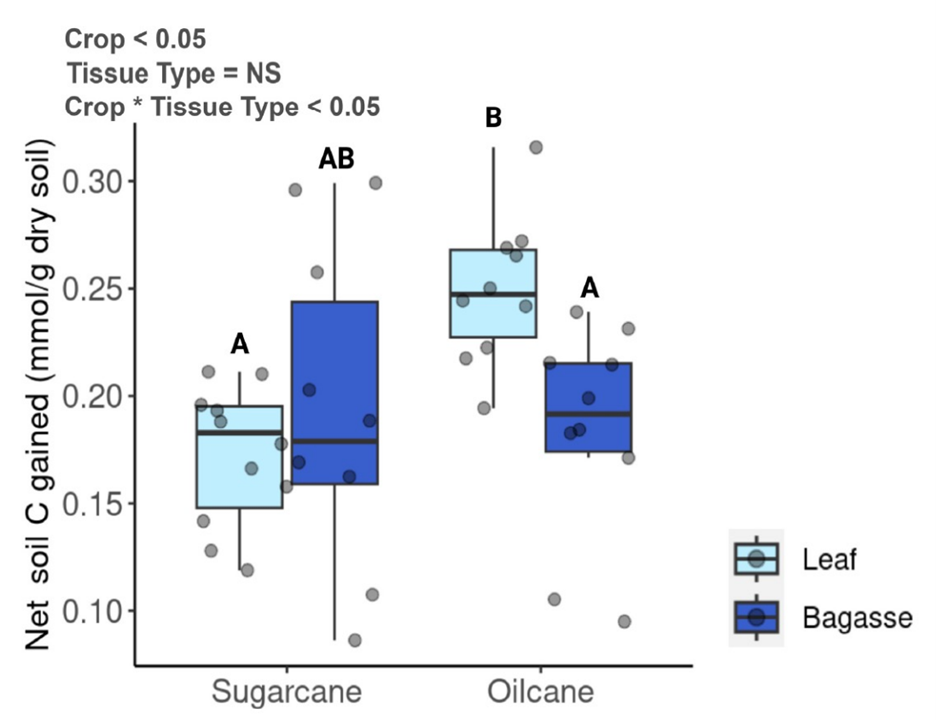Lipid-Enhanced Oilcane Does Not Impact Soil Carbon Dynamics Compared with Wild-Type Sugarcane
Themes: Conversion, Feedstock Production, Sustainability
Keywords: Genomics, Lipidomics, Soil
Citation
Pagliaro, Z., Burke, J., Morrisey, E., Ridgeway, J., Singh, V., Altpeter, F., Brzostek, E.R. May 30, 2023. Data from: “Lipid-enhanced Oilcane Does Not Impact Soil Carbon Dynamics Compared with Wild-Type Sugarcane.” GitHub Repository.
Overview

The carbon neutral potential of bioenergy relies in part on the ability of feedstocks to sequester carbon (C) in the soil. Sugarcane is one of the most widely used bioenergy crops, yet there remain unknowns about how it impacts soil C dynamics. In addition, Oilcane, a genetically modified version of Sugarcane has been produced to accumulate more energy-dense oils and less soluble lignin, which enhances conversion efficiency but may also impact soil C cycling. Thus, our objectives were to examine the impact of Sugarcane litter decomposition on soil C formation and losses and determine if the genetic modifications to produce Oilcane alter these dynamics. To do this, we incubated bagasse (processed stem litter) and leaf litter from Sugarcane and Oilcane in microcosms with forest soil for 11 weeks. We used differences in natural abundance δ13C between C3 forest soil and C4 litter to trace the fate of the litter into respiratory losses as well as stable and unstable soil C pools. Our results show that genetic modifications to Oilcane did not substantially alter soil C dynamics. Sugarcane and Oilcane litter both led to net soil C gains dominated by an accumulation of the added litter as unstable, particulate organic C (POC). Oilcane litter led to small but significantly greater net soil C gains than Sugarcane litter due to greater POC formation, but the formation of stable, mineral associated organic matter (MAOC) did not differ between crop types. Sugarcane and Oilcane had opposing effects on tissue type where Sugarcane bagasse formed more MAOC, while Oilcane leaves preferentially remained as POC which may have important management implications. These results suggest that genetic modifications to Sugarcane will not significantly impact soil C dynamics; however, this may not be universal to other crops particularly if modifications lead to greater differences in litter chemistry.
Data
- incubation setup
- Wet/dry sample data
- Litter data
- Respiration Data
- Soil Fractions